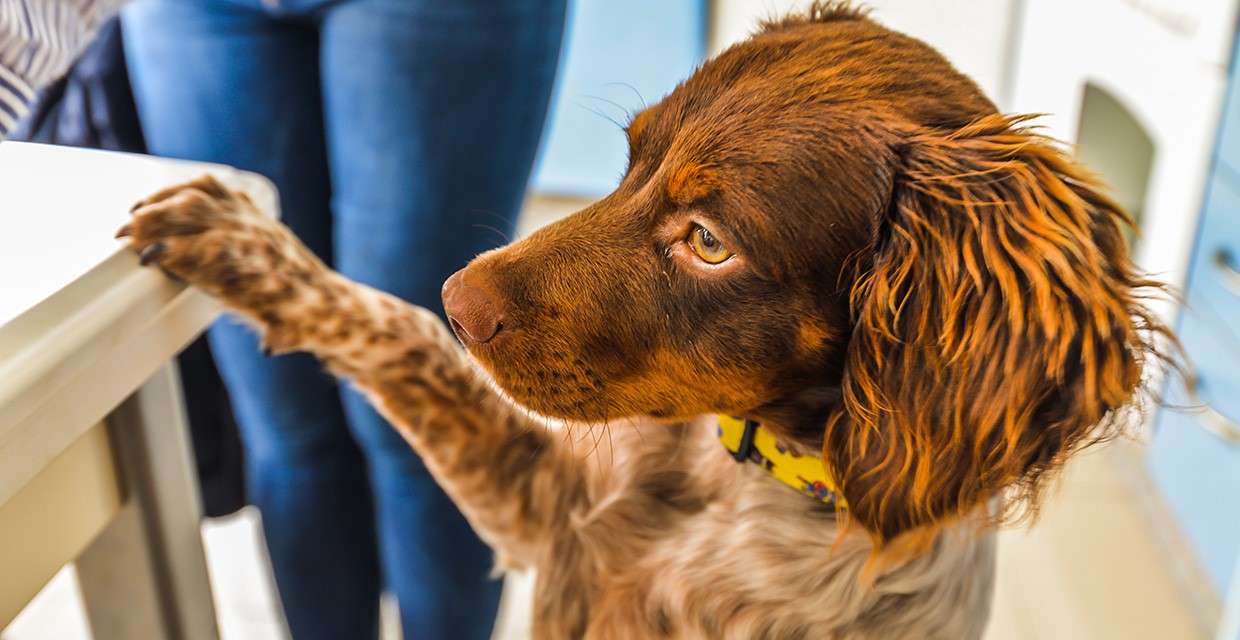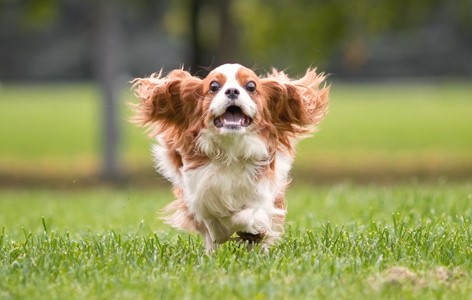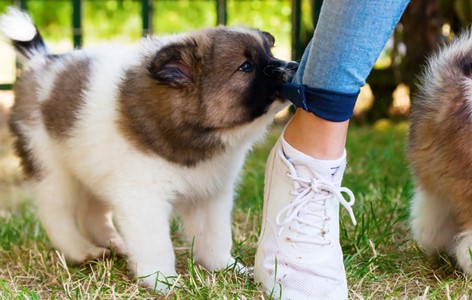Does your dog stare at you with those big brown puppy dog eyes, drooling, every time you sit down to eat? Or maybe your dog drops their ball at your feet and wills you to throw it for them, over and over again?
Dog begging is a common problem and can be embarrassing when you have friends or family over.
This article explains why dogs beg and how you can effectively train your dog not to beg.
Why do dogs beg?
Begging is when a dog sits in front of a person who is eating, staring and often drooling and licking their lips at the same time if the food is the object of their desire. Some dogs may also whine or bark as part of begging behaviour.
Begging is a learned behaviour. Dogs learn to beg because the behaviour works and the consequence is that they often get something they want, such as delicious human food!
Often, begging is a behaviour that’s been inadvertently rewarded by children or visiting family and friends who might fall for those puppy dog eyes more easily and sneak the dog something off their plate.
Begging is also a behaviour that’s often seen as cute in puppies but becomes more problematic when dogs grow into full sized adults!
Dogs don’t just beg for food. Some beg for a ball to be thrown or to go for a walk and even to be fed.
How to Stop a Dog from Begging
Remember, dogs repeat behaviours that work for them – those that result in a desired outcome.
Begging is a behaviour they have learned works in their interactions and past experiences with people.
This is good news because it means we can just as easily teach dogs not to beg.
To teach your dog not to beg you need to remove the consequence that previously reinforced the behaviour. For example, if your dog begs for food, completely ignore the behaviour and NEVER give in. If you do give in and feed your dog this is called intermittent reinforcement. It’s a powerful way to maintain an unwanted behaviour. However, if you can stay strong and consistent your dog will learn that begging no longer works and the behaviour will stop.
If you have a ball or toy-obsessed dog, teach them that you only throw their ball/toy when you initiate the game.
If your dog drops their ball or toy at your feet and begs you to throw it, completely ignore them.
Instead, wait for your dog to walk away and then call your dog over and ask them to sit. Now throw the ball/toy. This way, you are rewarding the sit with the consequence of throwing the ball/toy.
Similarly, for dog’s who beg to go for a walk you need to ensure that you don’t take them for a walk as a consequence of their begging. Instead, wait for calm and quiet behaviour.
Call your dog over and ask them to sit. Reward the sit with a walk instead.
With consistency and repetition your dog will learn that begging for a walk no longer works, but sitting calmly and quietly will instead result in a walk.
























